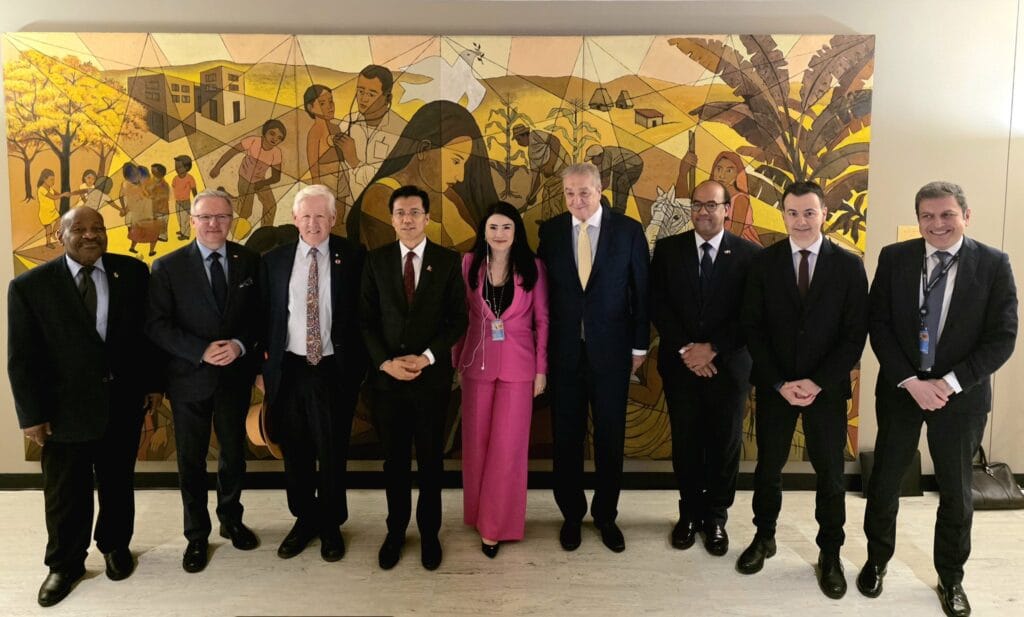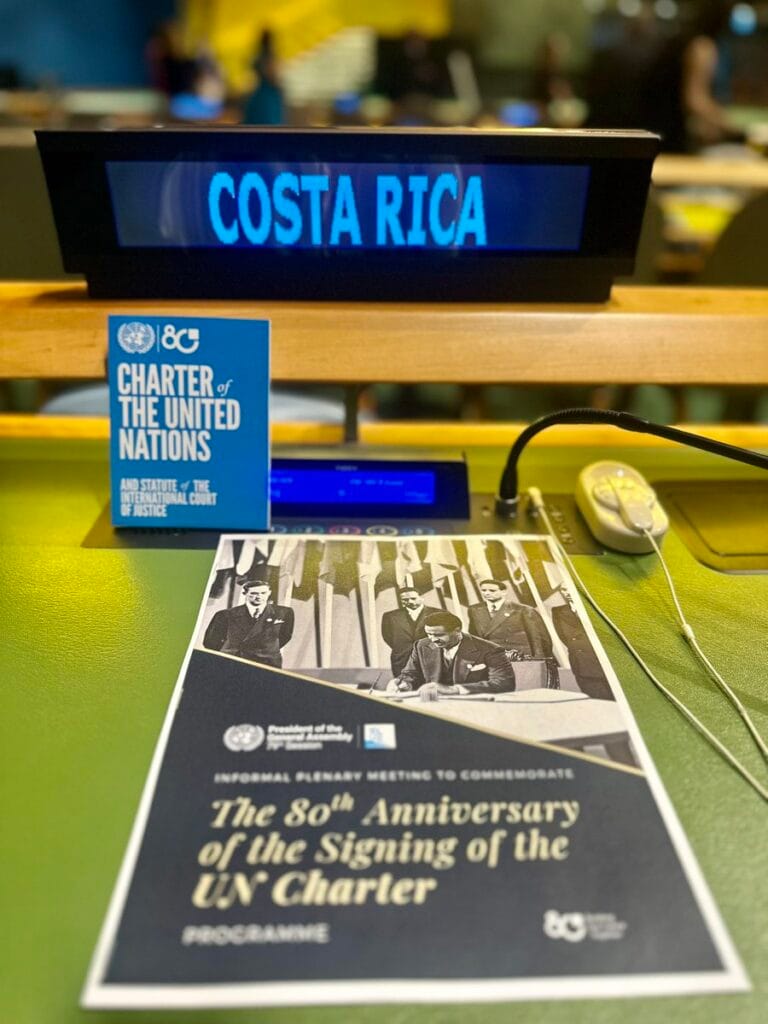
amalgoni
August 2, 2025
Amb. Maritza Chan Renews Call for Action on UN Charter’s Article 26
Featured News



Follow the MIssion
Get the daily mission activity delivered to your email. Just drop your email, we will do the rest.

Become The Next Great Leader to The Community
In a powerful reflection marking nearly 80 years since the adoption of the UN Charter, Costa Rica’s Permanent Representative to the United Nations, Ambassador Maritza Chan, has reignited global attention on Article 26, a lesser-known but foundational clause in the Charter that advocates for peace through disarmament and global cooperation.
“In 1945, we established the foundations of our collective security system, codified universal human rights, and developed modern international law in a Charter with 111 articles,” she said.
Among those, Article 26 uniquely proposes a “political economy of peace” that calls on member states to minimize the allocation of human and economic resources to warfare, urging instead for cooperative, not competitive, security.
“Its imperative to minimize resources devoted to war postulated an alternative rationality to the security dilemma and privileged cooperation over military competition,” Chan emphasized.
Yet, as she noted, the world has yet to fully act on this vision:
“Article 26 still awaits our response.”
“If We Want Peace, We Must Prepare for Peace”
Concluding her remarks, Ambassador Chan affirmed that the Charter is more than a legal document:
“It is the constitution of organized humanity, where law prevails over force and justice defines power.”
She echoed a timeless principle in both Latin and English:
“Si vis pacem, para pacem — If we want peace, we must prepare for peace.”
Her statement resonates deeply at a time of global unrest and rising military expenditures, renewing calls for disarmament, justice, and a return to multilateralism rooted in cooperation, not confrontation.
Related News
The UN belongs to young people, deputy chief tells young Costa Rican activists
The United Nations “belongs” to the younger generation, and countries...
